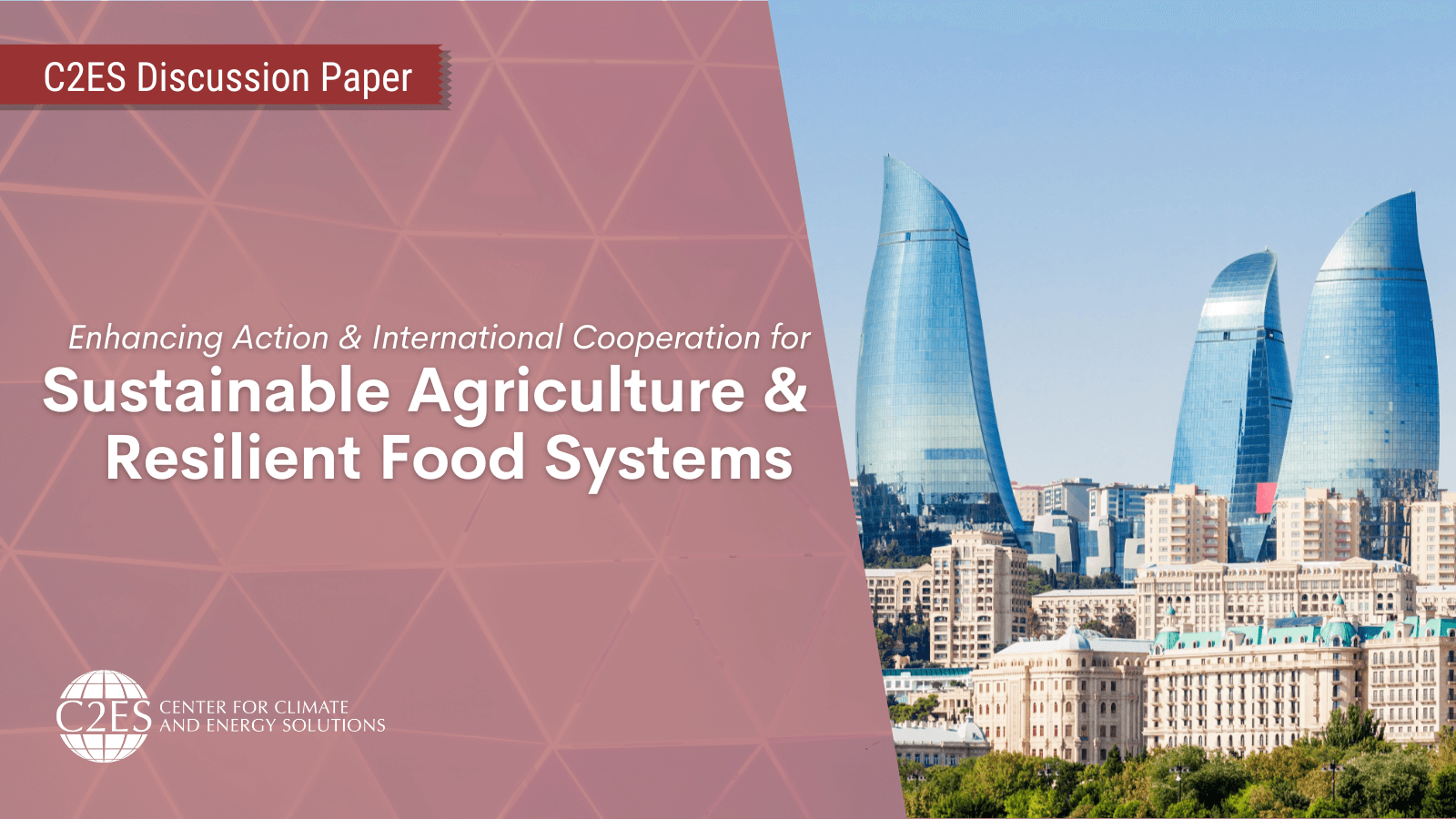
Title: A Call to Action: Accelerating Climate Resilience in Food Systems Ahead of 2030
As we edge closer to 2030, the global community is faced with a critical juncture in the battle against climate change—one that directly impacts food security and agricultural sustainability. A recent paper highlights the urgent need for enhanced action in addressing barriers to achieving the UAE’s ambitious goals outlined in the Framework for Global Climate Resilience. This initiative aims not just to bolster food and agricultural production systems but to ensure that these practices are sustainable and equitable, providing adequate nutrition to all.
To understand the complexity of these issues, we need to recognize the significance of the Global Stocktake (GST) decision made during the COP meetings. It is a wakeup call for governments and stakeholders worldwide; the GST’s core aim is to encourage nations to step up their commitments toward climate resilience by addressing their Nationally Determined Contributions (NDCs). Now more than ever, this theme has become critical to formulating actionable plans for sustainable food systems.
Barriers to Sustainable Implementation
While the aim is clear, the pathway is fraught with obstacles. The paper identifies several barriers that must be dismantled to catalyze effective change by 2024. These barriers include a lack of investment in sustainable agricultural practices, political inertia, inadequate infrastructure, and socio-economic disparities that hinder equitable access to resources.
Addressing these challenges is not merely a matter of policy; it calls for robust international cooperation. Countries can no longer afford the luxury of pursuing isolated strategies. Instead, there needs to be a concerted and coordinated global effort focusing on holistic approaches to resilience in food and agriculture.
Turning Challenges into Opportunities
Rather than viewing these barriers as insurmountable, the report posits that they present unique opportunities for enhanced collaboration and innovative solutions. Stakeholders, including governments, private sectors, and NGOs, must engage in dialogues that generate practical solutions, combining both technological advancements and traditional knowledge.
For instance, sustainable agricultural practices, such as regenerative farming and agroforestry, can mitigate the impacts of climate change while improving soil health and biodiversity. These methodologies not only enhance food production but also play a crucial role in building resilience against climate shocks.
Additionally, the approach to enhancing food distribution systems needs a significant overhaul. Ensuring equitable access to food means rethinking supply chains to make them more robust and inclusive, particularly for the most vulnerable populations.
Key Leadership Considerations for 2024-2026
To drive the necessary advancements, the paper underscores the importance of strong leadership. Leaders—whether in government, business, or civil society—must embrace this pivotal moment and set the tone for ambitious climate and food policies. Clear communication of priorities and effective governance will be essential in steering nations toward meeting their climate goals.
In practical terms, leaders should:
1. Develop Clear Action Plans: Establish specific, actionable goals aligned with the 2030 targets and the UAE Framework for Global Climate Resilience.
2. Foster Multi-Sectoral Collaboration: Engage stakeholders across different sectors to devise integrative solutions that transcend agricultural practices and touch on health, water management, and education.
3. Prioritize Equity: Ensure that measures implemented are inclusive, particularly focusing on marginalized communities who often bear the brunt of climate impacts, thus ensuring that food systems truly cater to everyone.
4. Encourage Innovation: Promote research and innovation in sustainable practices and technologies. This could include investments in biotechnology, crop diversification, and precision farming techniques, which could significantly enhance productivity without compromising the environmental integrity.
Final Thoughts on the Path Forward
As we move forward, 2024 can be a turning point toward achieving climate-resilient food systems if we capitalize on the opportunities presented by the barriers we face. The urgency for action cannot be overstated, as millions remain at risk of food insecurity exacerbated by climate change.
With the right leadership and commitment, transformative change is possible. The voices of all stakeholders must be amplified, with an emphasis on solidarity and teamwork. By prioritizing sustainable agricultural practices and equitable food distribution, we can not only meet the critical targets set for 2030 but also establish a legacy of resilience for generations to come.
Let’s work together to turn this vision into reality.
Tags: #BusinessNews, #EconomyNews, #UAE, #EnvironmentNews, #CommunitiesNews

